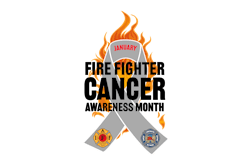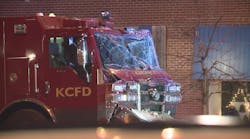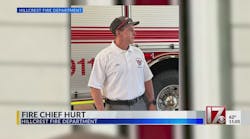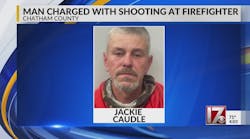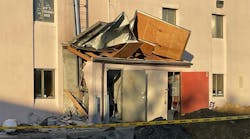As we step into the new year, we must take time to reflect on wins and losses in the renewed effort to lessen the threat from the biggest killer of firefighters—cancer. A national effort designated January as Firefighter Cancer Awareness Month, and it’s important to shine a spotlight on the critical issue.
At dinner last month, I was talking with a firefighter who said the topic of cancer has been “beaten into us,” adding that the members of his crew have ignored various messages and bulletins that were sent their way. This was disheartening, particularly with their loss of several active and retired firefighters to cancers both job-related and not. He said the conversation that surrounds firefighter cancer gained momentum in the department and that steps were taken, but the “messages about cancer have been exhausted.”
He suggested that I look at the “Safety Third” concept to understand where the mindset of many firefighters is after years of cancer discussions.
Not long ago, Mike Rowe, who is the host of the TV show, “Dirty Jobs,” shared his insights on society’s acceptance of risk. He pointed out that people have a willingness to tolerate a significant loss when it comes to safety-related issues despite education, outreach and technology.
In one discussion, he wrote about the high annual number of roadway deaths in the United States, with the premise that drivers accept death on the roadway in order to drive at high speeds, not use directional signals and cut people off. In other words, the mentality is that it’s OK to do these things knowing that some people will die in any case.
Rowe said that we lose close to 40,000 people annually to roadway accidents and that people don’t bat an eye. Roadway deaths are considered an acceptable loss. The uncomfortable truth is that safety isn’t always people’s top priority, and if the government were to step in and reduce speed limits, require drivers and passengers to wear safety gear, and limit turns at intersections, it would result in public outcry.
Rowe’s observations serve as a reminder that societal norms dictate the level of importance that people assign to safety protocols. He said that if you polled people in their workplace, they rarely would put safety as the first or second priority. Everyone knows the inherent risks, but they know that they have a job to do, and that’s their No. 1 priority.
As you navigate the conversation about risk and acceptable losses, challenge the members of your crews to redefine acceptable losses when it comes to the well-being of those you work with. This Firefighter Cancer Awareness Month, advocate for change and promote awareness.
I think back to 2006, when Billy Goldfeder’s multipart podcast looked at the investigation into firefighter cancer from a research project at the University of Cincinnati. Ironically enough, Goldfeder’s podcast was called “Through the Smoke.” The podcast began efforts to educate firefighters on the cancerous compounds that are found in smoke and other fireground exposures.
Today’s statistics are sobering, not only in regard to the public but in regard to the increased threat to firefighters. If cancer prevention isn’t a priority in your department, step up and take the lead. Even if it isn’t the first or second priority, make it the third, and it certainly will save lives.
Just as advancements in vehicle and roadway safety evolved and reduced traffic fatalities, a similar commitment to progress in the realm of firefighting safety protocols is essential.
You must do more than just say, “We remember you,” when you pass the photos of firefighters who lost their battle to cancer that hang in the station or at an annual memorial service. In a job that’s full of solving the impossible, ways to honor their sacrifice are easy: mask up, wear full PPE, perform decontamination and take a shower. If the members who died from cancer had the opportunity to take those simple steps, they would have the opportunity to spend another day with you.
